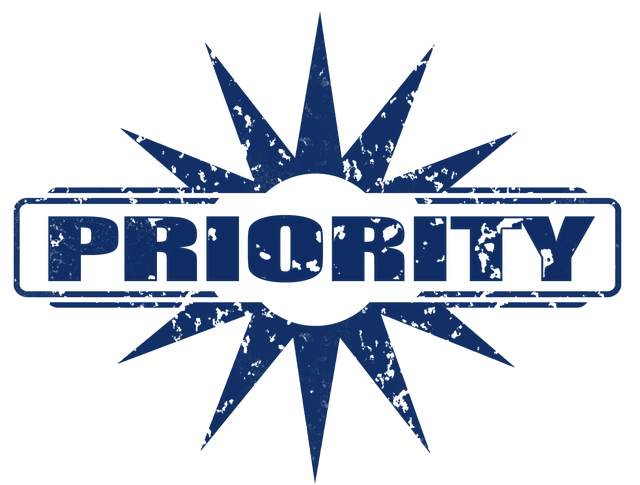Choosing the right business insurance involves a multi-step process starting with understanding your unique operational risks, including industry specifics, location, team size, and assets. Evaluate essential coverage options like general liability, property, professional liability, workers' compensation, and commercial auto. Research insurers' reputations, claims handling, customer service, and financial stability. Compare policies from providers offering comprehensive plans within budget, prioritizing adequate limits. Look for added services and perks tailored to your industry. Regularly review and adjust policies as your business grows and risks change.
Selecting the ideal business insurance is a cornerstone of successful risk management for any small enterprise. This comprehensive guide navigates the process, from understanding your unique operational risks to evaluating insurers and tailoring coverage options. We delve into essential considerations like claims handling, additional services, and cost-effectiveness, offering insights on how to choose the right policy to safeguard your business and foster its growth.
Understanding Your Business Needs: Identifying Risk Areas

Understanding your business needs is a crucial step in choosing the right insurance. Before shopping around, take time to identify potential risk areas unique to your operation. Consider factors like the nature of your industry, location, size of your team, and any specific assets or liabilities. For example, a construction company faces different risks than a tech startup. One may require extensive worker’s compensation coverage while the other might focus on data breach protection.
Identifying these risk areas will help you determine the types of insurance policies you need. Some common business insurance options include general liability, property insurance, professional liability, workers’ compensation, and commercial auto insurance. Each policy caters to different aspects of potential business losses, ensuring you’re protected in various scenarios.
Types of Business Insurance Policies to Consider

When it comes to safeguarding your small business, understanding the various types of insurance policies is crucial. The right coverage can protect your assets, shield against legal liabilities, and ensure financial stability in the face of unforeseen events. Among the essential options, general liability insurance stands out as a cornerstone, offering protection against claims of bodily injury or property damage on your business premises. This policy is particularly vital for businesses that interact with customers or clients directly.
Additionally, considering professional liability insurance is wise, especially for service-based businesses. It safeguards against allegations of negligence related to your professional services, providing peace of mind in high-risk industries. Property insurance is another critical aspect, designed to cover the physical assets of your business, including buildings, equipment, and inventory. By carefully evaluating these options and tailoring them to your specific needs, you can effectively navigate the process of How to Choose the Right Business Insurance.
Evaluating Potential Insurers: Reputations and Track Records

When evaluating potential insurers, one of the most crucial aspects in choosing the right business insurance is understanding their reputations and track records. It’s essential to research an insurer’s history, customer reviews, and any complaints registered with regulatory bodies. Reputable insurance providers have a proven record of financial stability and reliable service, ensuring your peace of mind.
Look for insurers with a strong claim settlement history, as this indicates their efficiency and commitment to clients. Online reviews can offer valuable insights into an insurer’s customer service, transparency, and overall reliability. By considering these factors, you can make an informed decision, ensuring that your small business is well-protected by the right insurance provider.
Coverage Options and Limits: What You Need and Can Afford

When choosing the right business insurance, understanding your coverage options and limits is paramount. Different policies cater to various aspects of a small business, from general liability for customer injuries or property damage to professional liability for errors and omissions. Comprehensive business insurance typically includes liability, property, workers’ compensation, and sometimes even business interruption coverage.
The key is to assess your business needs and financial constraints. Start by evaluating potential risks specific to your industry and location. Consider the value of your assets, including inventory, equipment, and real estate. Determine your liability exposure by analyzing past incidents and customer feedback. Once you have a clear picture, compare insurance plans and quotes from providers like [Provider 1], [Provider 2], and [Provider 3]. Look for policies that offer adequate limits within your budget, ensuring you’re protected without overpaying.
Claims Process and Customer Support: Key Factors

When evaluating the best insurance providers for small businesses, understanding their claims process and customer support is paramount. How to Choose the Right Business Insurance involves scrutinizing these aspects as they can significantly impact your experience during unforeseen events. Efficient and transparent claims handling ensures that you receive timely compensation when accidents or disasters strike, helping you to swiftly recover and continue operations without undue financial strain.
Reputable insurers offer robust customer support systems, typically including 24/7 accessibility, multiple contact channels, and dedicated resources for small business owners. This level of support can prove invaluable during the initial stages of policy acquisition, throughout ongoing management, and especially when making claims. Look for providers who demonstrate a commitment to excellent communication, clear explanation of coverage, and proactive assistance in navigating the complexities of insurance jargon.
Additional Services and Perks: Enhancing Your Protection

When comparing business insurance providers, it’s crucial to look beyond coverage limits and premiums. One key differentiator is the array of additional services and perks each provider offers. These extras can significantly enhance your protection and peace of mind. Many insurers include perks like access to legal advice, business interruption coverage during times of crisis, and even assistance with public relations and crisis management in the event of a claim or data breach.
Some providers also offer tailored programs for specific industries, recognizing that small businesses in different sectors face unique risks. Whether you’re in retail, hospitality, technology, or healthcare, choosing an insurer with industry-specific insights and services can be invaluable. These extras demonstrate that the provider understands your business and is committed to going above and beyond standard coverage, ultimately contributing to the long-term success of your small enterprise.
Cost Analysis: Comparing Quotes and Policies

When evaluating insurance providers for your small business, one of the most critical steps is performing a thorough cost analysis. This involves comparing quotes and policies from various insurers to ensure you’re getting the best value for your money. Start by collecting multiple quotes from different providers, considering both general liability insurance and specific coverage options tailored to your industry. Pay close attention to deductibles, coverage limits, and any additional costs or exclusions.
Next, assess each policy’s overall cost but also its comprehensiveness. Don’t merely opt for the cheapest option; instead, look for a balance between price and coverage. Consider the potential risks specific to your business and choose an insurance plan that adequately addresses those risks. Remember, the right business insurance should offer suitable protection at a competitive price, allowing you to operate with peace of mind.
Regular Review and Adjustments: Staying Prepared

Selecting the ideal business insurance isn’t a one-time task; it’s an ongoing process that demands regular review and adjustments. As your small business evolves, so do its risks. That’s why staying on top of your coverage is crucial to ensuring you’re adequately protected at all times.
How to Choose the Right Business Insurance involves periodically assessing your current policies, examining changes in your industry, and considering new threats or opportunities that may arise. By doing so, you can make informed decisions about modifying or adding specific coverages to best fit your business’s present needs.
